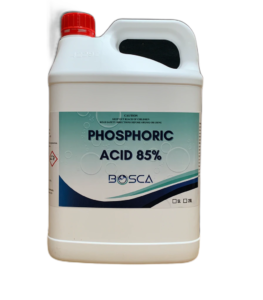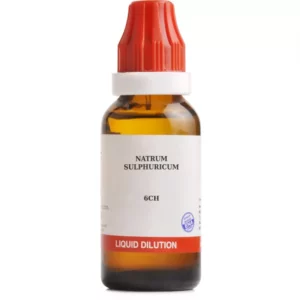Living with diabetes poses a significant challenge, requiring a lifelong commitment to managing blood sugar levels. While conventional medicine offers effective solutions, an increasing number of individuals are exploring alternative therapies, including homeopathy. In this blog, we delve into the principles of homeopathic treatment for diabetes, exploring its holistic approach to managing this chronic condition.
Contents
Benefits of Homeopathic Treatment For Diabetes

Here are some perceived benefits that some individuals attribute to homeopathic treatment for diabetes:
- Holistic Approach: Some individuals appreciate the personalized and comprehensive evaluation of physical, mental, and emotional aspects that homeopaths undertake before prescribing a remedy.
- Individualized Treatment: The individualized approach is believed by some to address the specific needs and variations in symptoms experienced by people with diabetes.
- Low Risk of Side Effects: Some individuals appreciate the perceived safety of homeopathic remedies, especially in contrast to potential side effects associated with certain conventional medications.
- Focus on Prevention: Some individuals find value in a preventive approach, hoping that homeopathic remedies may contribute to long-term health and well-being.
- Emphasis on Emotional Well-Being: Those who believe in the connection between emotional well-being and physical health may find this approach appealing.
- Complementary Approach: Combining homeopathy with conventional treatments may provide a more comprehensive approach.
Top 10 Homeopathic Treatments for Diabetes
Homeopathy is a holistic system of medicine that uses highly diluted substances to stimulate the body’s self-healing mechanisms. If you are considering homeopathic treatment for diabetes, it’s crucial to consult with a qualified homeopath and continue following the advice of your primary healthcare provider. Here are some homeopathic remedies that may be considered:
Uranium Nitricum
Uranium Nitricum is derived from uranium, and in homeopathy, it is primarily associated with managing diabetes. This remedy is considered when individuals experience symptoms such as excessive thirst, particularly for cold water, along with frequent urination. There is often a notable weakness and fatigue associated with these symptoms. Homeopaths prescribe Uranium Nitricum based on the Law of Similars, where the substance that causes specific symptoms in a healthy individual is used to treat similar symptoms in a sick person.
Application: In cases of diabetes where Uranium Nitricum is indicated, individuals may feel a persistent thirst that is difficult to quench. This intense thirst is often accompanied by a frequent need to urinate, leading to weakness and fatigue. Homeopaths assess the overall symptom picture, taking into account both physical and emotional aspects.
Syzygium Jambolanum
Syzygium Jambolanum is a homeopathic remedy prepared from the seeds of the jambolan tree. It is often considered for individuals with diabetes, especially when there is a significant increase in hunger, thirst, and fatigue. The remedy is believed to have a regulatory effect on blood sugar levels.
Application: Homeopaths may recommend Syzygium Jambolanum when individuals with diabetes exhibit symptoms such as excessive hunger and thirst. The remedy is also chosen when there is a tendency for frequent urination, accompanied by weakness and fatigue. The application of Syzygium Jambolanum goes beyond just addressing the physical symptoms. Homeopaths consider emotional aspects, such as irritability or anxiety associated with diabetes, to tailor the remedy to the individual’s unique symptomatology.
Phosphoric Acid

Phosphoric Acid is a homeopathic remedy often considered for individuals with diabetes who experience profound mental and physical exhaustion. It is indicated when emotional disturbances, memory loss, and a general sense of apathy are prominent symptoms.
Application: This remedy is chosen when individuals with diabetes exhibit deep fatigue, both mentally and physically. There is often a sense of indifference or apathy towards the surroundings and a loss of interest in daily activities. Phosphoric Acid is particularly recommended when the exhaustion is accompanied by emotional symptoms, such as grief, disappointment, or the effects of prolonged stress. Homeopaths carefully consider the overall symptom picture, aiming to address both the physical and emotional aspects of the individual’s experience with diabetes.
Lycopodium Clavatum
Lycopodium Clavatum is a homeopathic remedy known for its effectiveness in cases where individuals with diabetes experience gastric symptoms. This may include bloating, flatulence, and indigestion. Additionally, it is believed to have a balancing effect on blood sugar levels.
Application: This remedy is often prescribed when there are digestive issues associated with diabetes. Individuals may feel a sensation of fullness even after consuming a small quantity of food, and there may be a specific craving for sweets. Lycopodium Clavatum is considered especially when symptoms worsen in the late afternoon or early evening. Homeopaths assess the overall symptom picture, taking into account both physical and emotional aspects to determine the appropriateness of this remedy for the individual.
Phosphorus
Phosphorus is a homeopathic remedy that may be recommended for individuals with diabetes who exhibit symptoms such as excessive thirst, frequent urination, and a tendency to develop hypoglycemia.
Application: This remedy is often considered when there is a marked desire for cold drinks and a susceptibility to rapid fluctuations in blood sugar levels. Individuals requiring Phosphorus may feel weak, shaky, or dizzy due to changes in blood glucose. Additionally, emotional aspects such as anxiety and fear may influence the choice of Phosphorus in homeopathic diabetes management. The remedy is selected based on a thorough assessment of the patient’s overall symptom picture. It also considers both physical and emotional aspects.
Natrum Sulphuricum

Natrum Sulphuricum is a homeopathic remedy often indicated for individuals with diabetes who show increased susceptibility to liver disorders and associated symptoms.
Application: This remedy may be recommended when diabetes is accompanied by symptoms such as a bitter taste in the mouth, nausea, and a tendency to feel worse in damp weather. Natrum Sulphuricum is believed to have an impact on the liver, and its application in diabetes management is often based on the overall symptomatology of the individual. A detailed assessment by a homeopathic practitioner is crucial to ascertain the appropriateness of this remedy for a specific case.
Arsenicum Album
Arsenicum Album is a homeopathic remedy often considered for individuals with diabetes who experience symptoms of restlessness, anxiety, and a desire for warmth.
Application: This remedy is indicated when there is a sense of anxiety and insecurity associated with the diabetic condition. Individuals may feel compelled to move around constantly, and symptoms may worsen at night. Arsenicum Album is chosen based on the overall mental and physical symptom picture, making it suitable for those who exhibit restlessness and fear regarding their health.
Iodum
Iodum is a homeopathic remedy that may be recommended for individuals with diabetes who experience intense hunger, rapid weight loss, and symptoms exacerbated by warmth.
Application: This remedy is often considered when there is an excessive appetite, yet the individual continues to lose weight. Iodum may be chosen when there is a craving for sweets and a tendency for symptoms to worsen in warm surroundings. A detailed evaluation of the patient’s physical and mental symptoms helps determine the appropriateness of Iodum in homeopathic diabetes management.
Natrum Phosphoricum
Overview: Natrum Phosphoricum is a homeopathic remedy often indicated for individuals with diabetes who experience symptoms of indigestion, heartburn, and a tendency to feel worse after consuming rich or fatty foods.
Application: This remedy may be chosen when there is a sour taste in the mouth and symptoms of acidity. Natrum Phosphoricum is believed to have an impact on digestive disturbances associated with diabetes. Its selection is based on a detailed assessment of the patient’s overall symptom picture. This focuses on digestive issues and their relationship to the diabetic condition.
Syzigium Jambolanum
Syzigium Jambolanum is a homeopathic remedy derived from the seeds of the jambolan tree. It is often recommended for managing diabetes, particularly when symptoms include excessive hunger, increased thirst, and fatigue.
Application: Homeopaths may suggest Syzigium Jambolanum when there is a tendency for frequent urination accompanied by feelings of weakness. This remedy is believed to have a regulatory effect on blood sugar levels. Its application extends beyond just the physical symptoms. Emotional factors, such as irritability or anxiety associated with diabetes, are also considered when prescribing this remedy. As with all homeopathic treatments, the choice of Syzigium Jambolanum is based on a holistic evaluation of the patient’s overall health and symptomatology.
Alternatives To Homeopathic Treatment For Diabetes

While some individuals may find relief in homeopathic treatments, it’s essential to acknowledge that diabetes is a complex medical condition that often requires a multifaceted approach. Conventional medicine and lifestyle modifications play a crucial role in managing diabetes. Here are some alternative treatments and approaches to manage diabetes:
- Conventional Medications: Conventional medications, including oral hypoglycemic agents and insulin, are commonly prescribed to manage diabetes. These medications work by either increasing insulin sensitivity, promoting insulin production, or reducing glucose absorption in the intestines.
- Diet and Nutrition: Adopting a well-balanced and nutritious diet is fundamental in managing diabetes. Focus on whole foods, including fruits, vegetables, whole grains, lean proteins, and healthy fats. Limit the intake of processed foods, refined carbohydrates, and added sugars. Meal planning and portion control are crucial to regulating blood sugar levels.
- Regular Exercise: Engaging in regular physical activity has numerous benefits for individuals with diabetes. Exercise helps improve insulin sensitivity, lowers blood sugar levels, and aids in weight management. Incorporate a mix of aerobic exercises, strength training, and flexibility exercises into your routine. Always consult with a healthcare professional before starting a new exercise regimen.
- Stress Management: Chronic stress can negatively impact blood sugar levels. Stress management techniques, such as meditation, deep breathing exercises, yoga, and mindfulness, can help reduce stress and improve overall well-being. Balancing work, and lifestyle, and incorporating relaxation practices are important components of diabetes management.
- Weight Management: Achieving and maintaining a healthy weight is crucial for individuals with diabetes. It is especially for those with type 2 diabetes. Weight loss can improve insulin sensitivity and blood sugar control. A combination of a balanced diet and regular physical activity contributes to effective weight management.
- Herbal Supplements: Some individuals explore the use of herbal supplements to complement conventional diabetes management. Common herbs and supplements include bitter melon, fenugreek, cinnamon, and aloe vera. While research on the effectiveness of these supplements is ongoing, it’s essential to consult with a healthcare professional before incorporating them into your routine, as they may interact with medications or have potential side effects.
Conclusion
Homeopathic treatment for diabetes offers a holistic and individualized approach to managing this chronic condition. While it may not replace conventional medicine, it can complement existing treatments. It can also contribute to an improved quality of life for individuals living with diabetes. As with any health condition, it’s essential to consult with healthcare professionals to determine the most appropriate course of action.
Do you want to get rid of diabetes? Join our online diabetes treatment program and reverse Diabetes naturally through lifestyle changes such as a Personalized Diet plan, Exercise, Yoga, dieticians, and health coaches.

